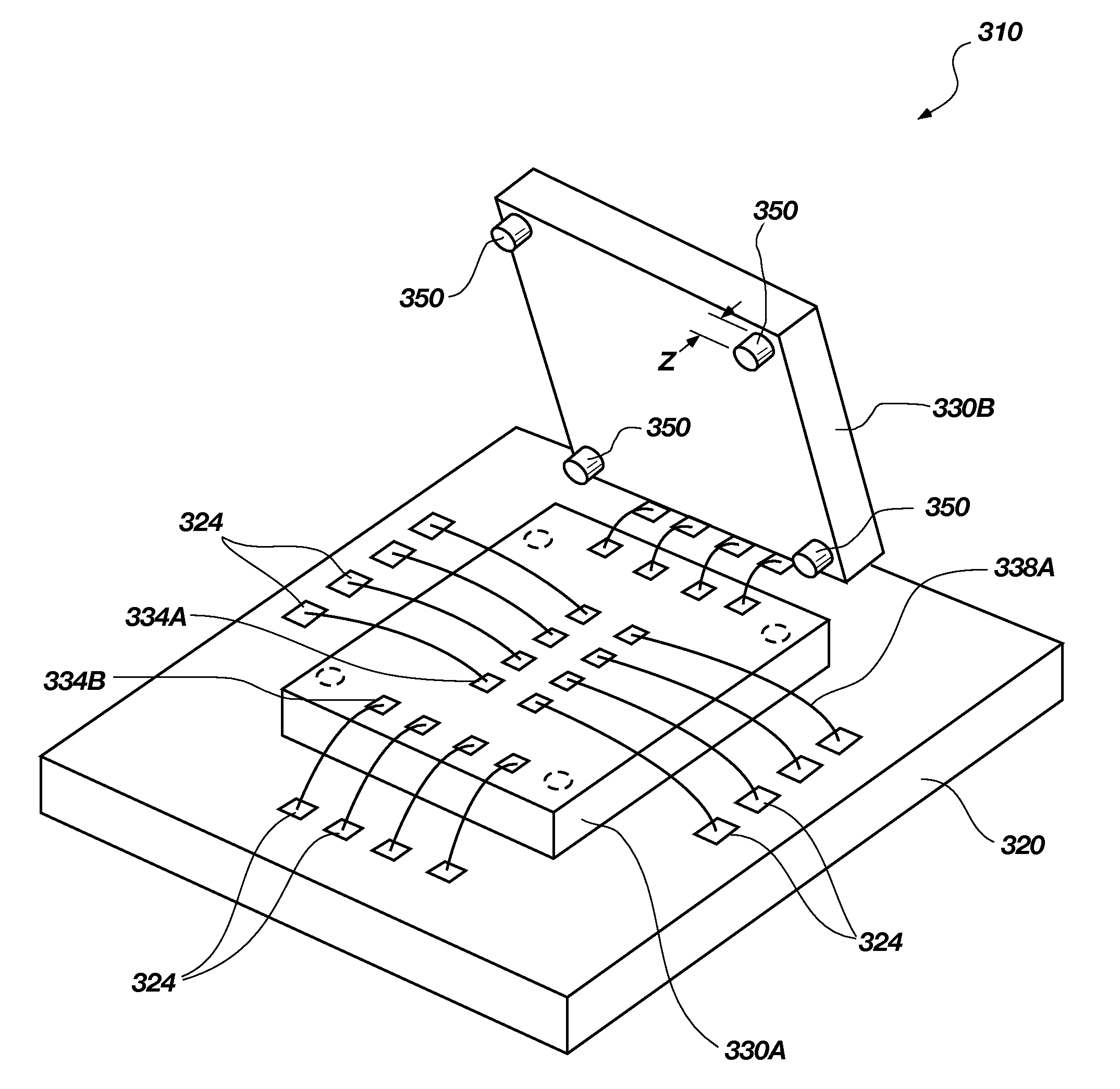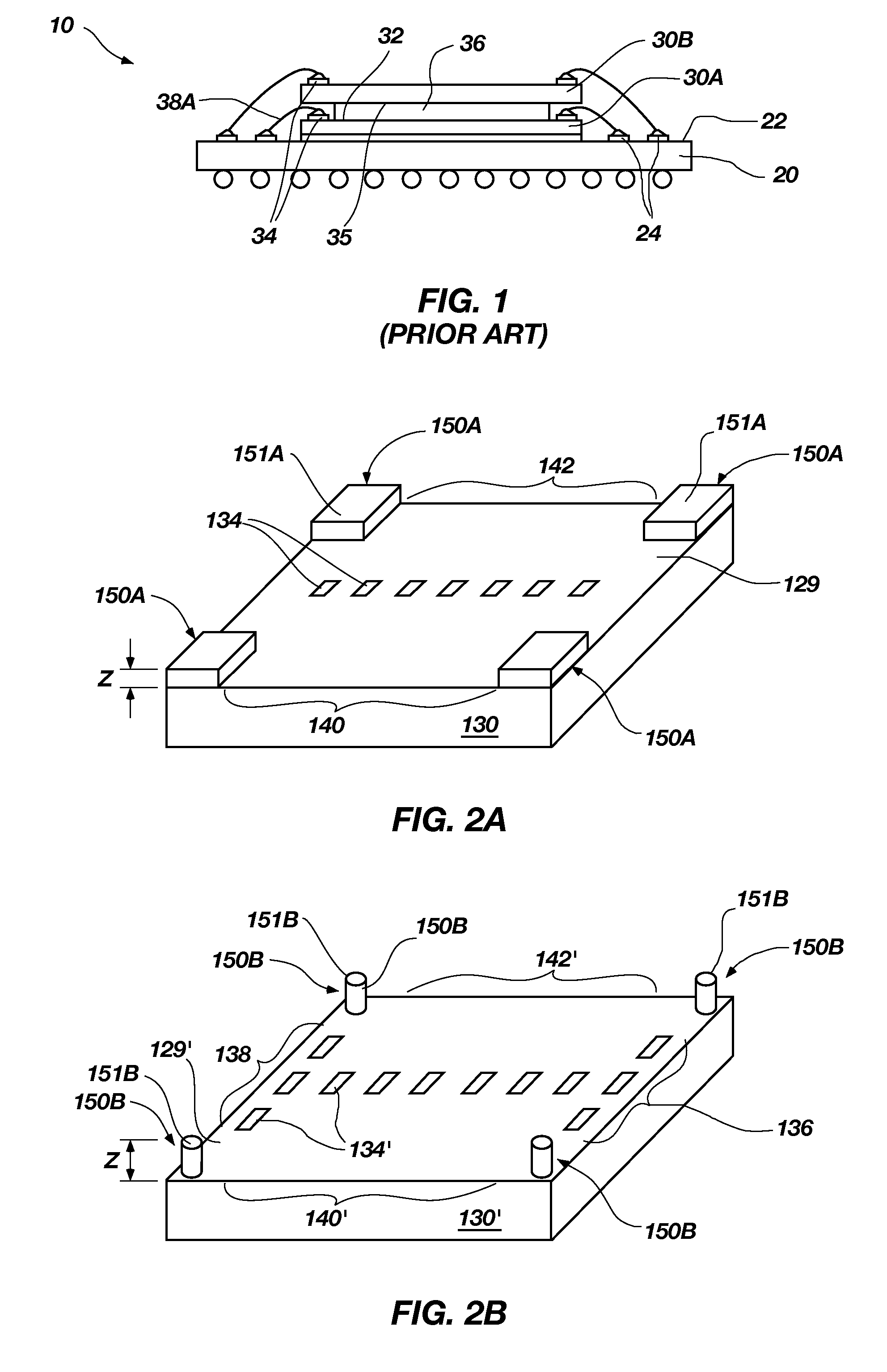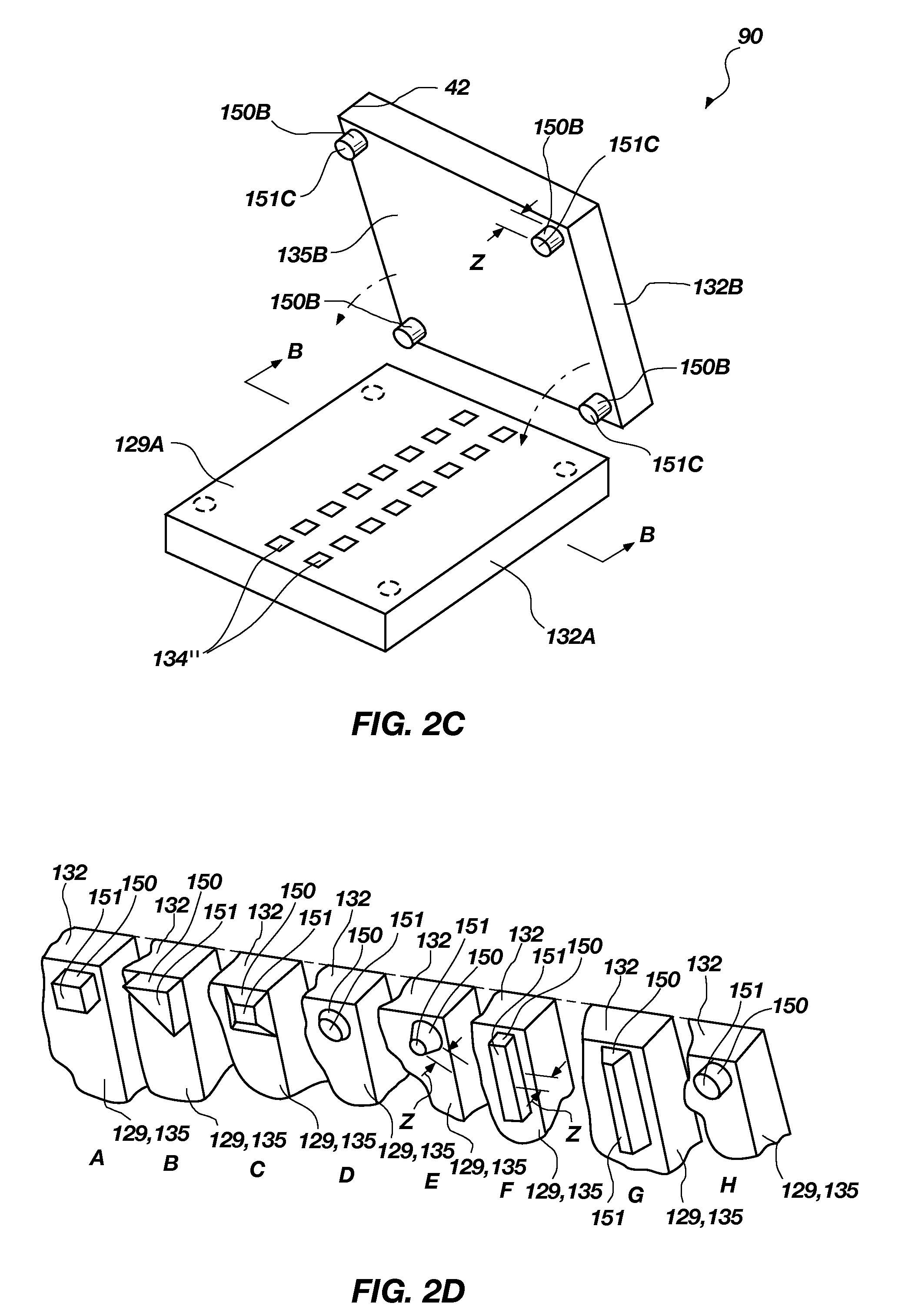Assemblies and multi chip modules including stacked semiconductor dice having centrally located, wire bonded bond pads
a technology of semiconductor dice and multi-chip modules, which is applied in the direction of semiconductor devices, semiconductor/solid-state device details, electrical devices, etc., can solve the problems of reducing the height of such multi-chip modules, the difficulty of real-time reducing the number of semiconductor devices that can be placed therein, and the difficulty of achieving the effect of reducing the height of the assembly
- Summary
- Abstract
- Description
- Claims
- Application Information
AI Technical Summary
Benefits of technology
Problems solved by technology
Method used
Image
Examples
Embodiment Construction
[0046]Generally, the present invention contemplates that spacers may be disposed between adjacent semiconductor devices comprising an MCM. Further, the active surfaces of both of the adjacent semiconductor devices may be oriented in substantially the same direction. Also, the semiconductor device having an active surface directly facing a back side of the adjacent semiconductor device may include centrally located bond pads that are wire bonded to a substrate. Such a configuration may provide an MCM with improved flexibility and reliability. As used herein, the term “semiconductor device” includes, for example, a semiconductor die of silicon, gallium arsenide, indium phosphide or other semiconductive material configured as a processor, logic, memory or other function, wherein integrated circuitry is fabricated on an active surface of the die while part of a wafer or other bulk semiconductor substrate that is later “singulated” to form a plurality of individual semiconductor dice.
[00...
PUM
 Login to View More
Login to View More Abstract
Description
Claims
Application Information
 Login to View More
Login to View More - R&D
- Intellectual Property
- Life Sciences
- Materials
- Tech Scout
- Unparalleled Data Quality
- Higher Quality Content
- 60% Fewer Hallucinations
Browse by: Latest US Patents, China's latest patents, Technical Efficacy Thesaurus, Application Domain, Technology Topic, Popular Technical Reports.
© 2025 PatSnap. All rights reserved.Legal|Privacy policy|Modern Slavery Act Transparency Statement|Sitemap|About US| Contact US: help@patsnap.com



